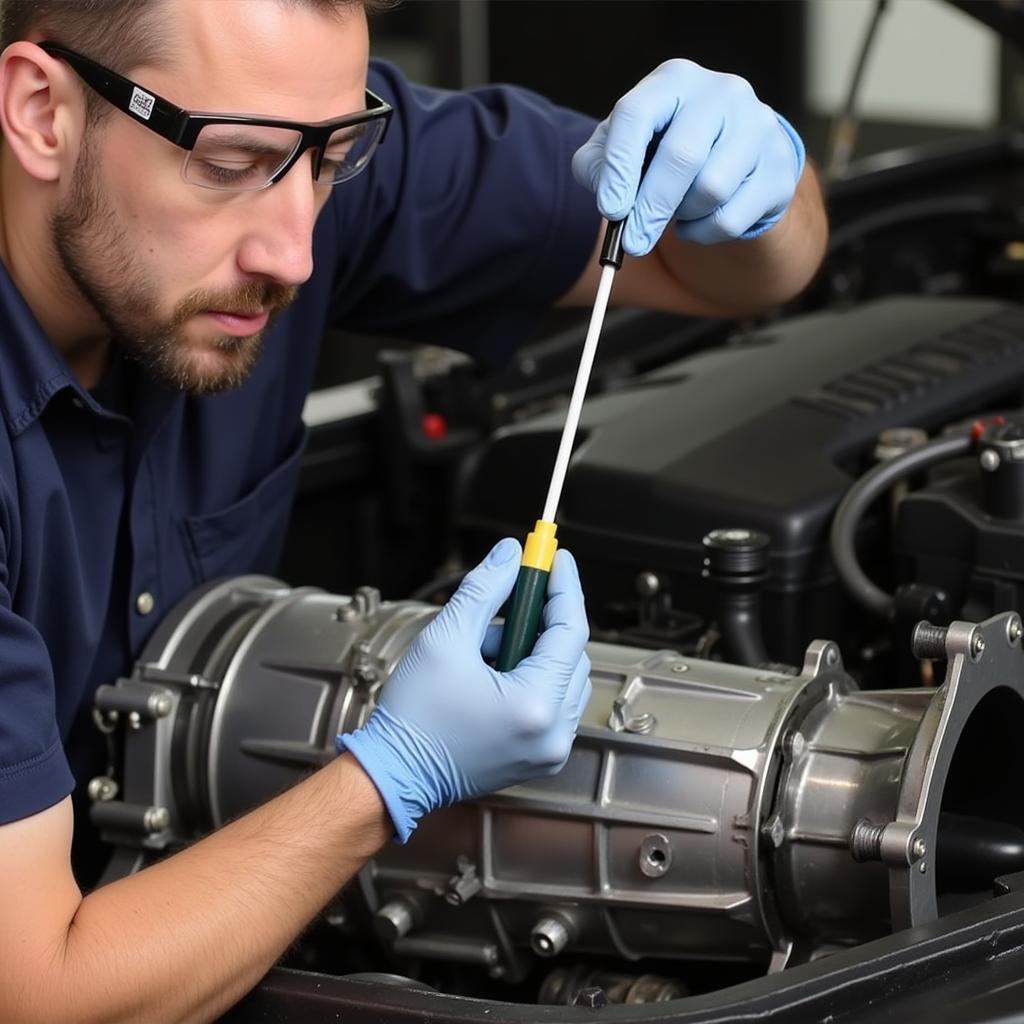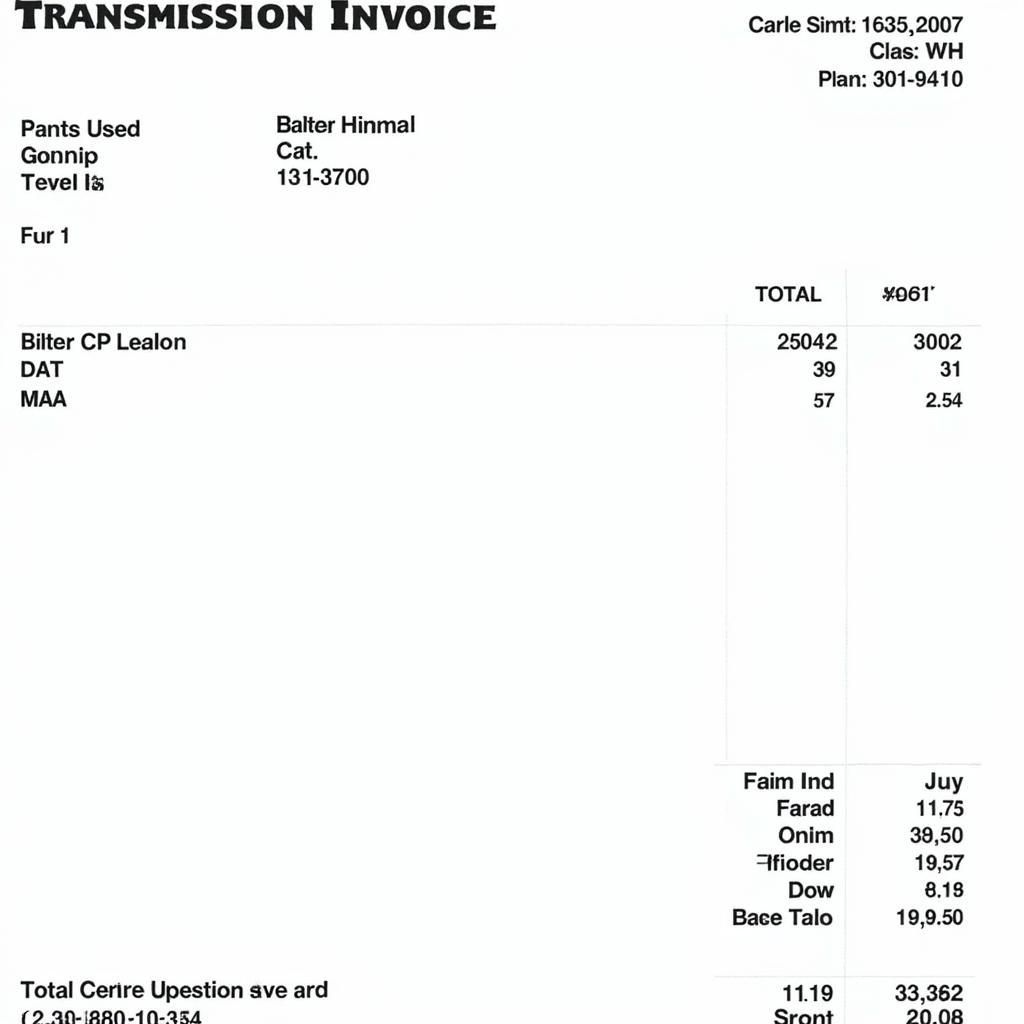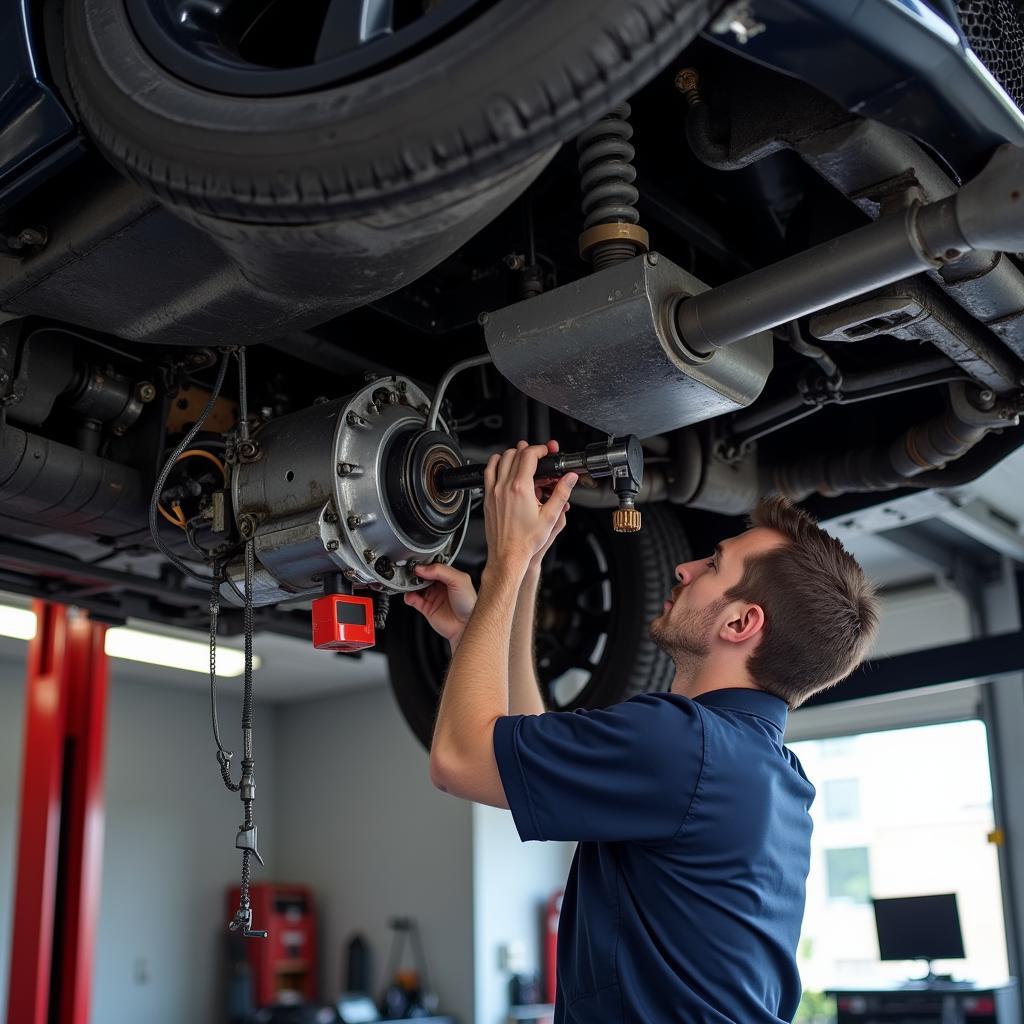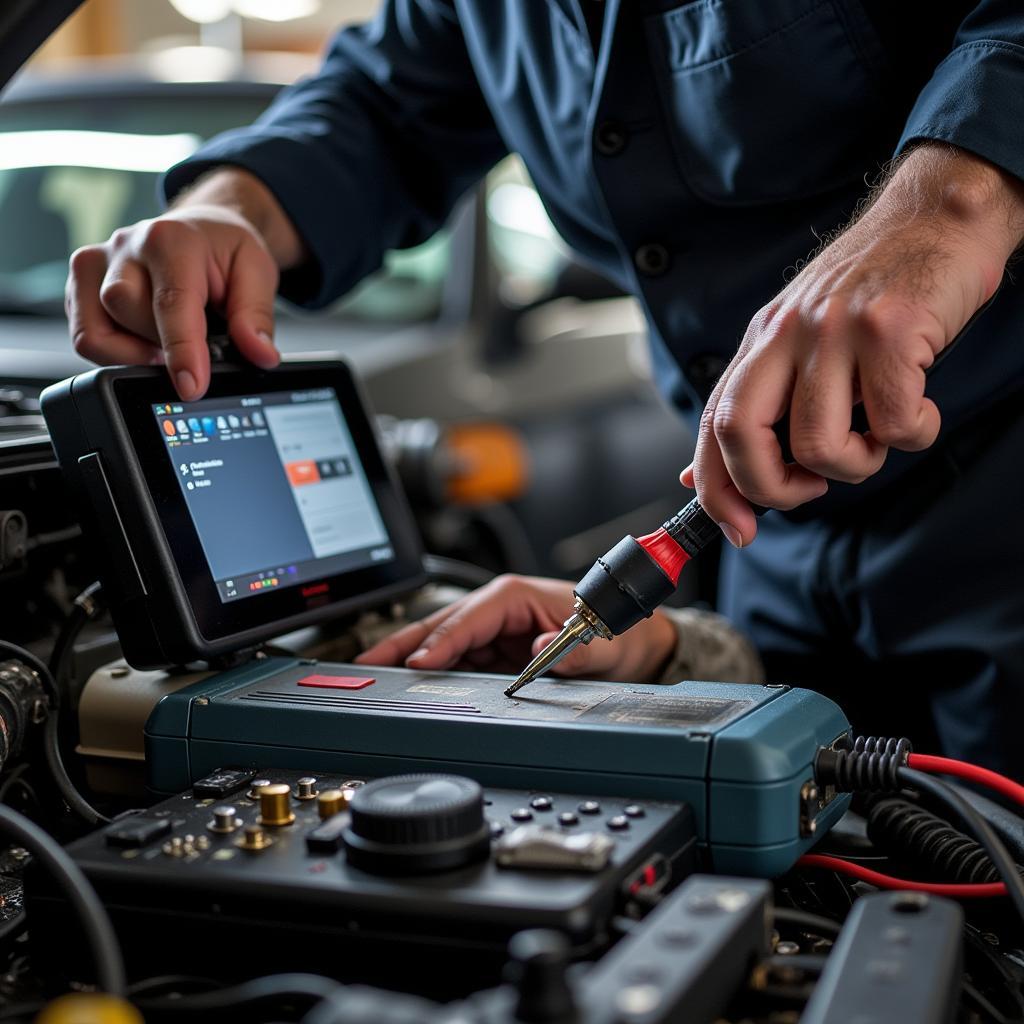Should I Be Worried If a Used Car Said Transmission Serviced?
If you’re eyeing a used car and the listing mentions “transmission serviced,” you’re probably wondering if that’s a good sign or a red flag. It’s a valid question, and understanding what this actually means can save you from potential headaches (and costly repairs) down the road. This article will delve into the nuances of a “serviced” transmission, helping you navigate the used car market with confidence.
Decoding “Transmission Serviced”: Good Sign or Red Flag?
A “transmission serviced” note can be both positive and potentially negative. It could simply mean routine maintenance like a fluid and filter change, indicating a responsible previous owner. However, it could also be masking underlying transmission problems. The key is to investigate further and not take “serviced” at face value.
What Does “Transmission Serviced” Actually Mean?
The term “transmission serviced” is unfortunately vague. It doesn’t specify what service was performed. Did it involve a simple fluid change, a more complex filter replacement, or was it a major repair following a significant issue? Without further details, it’s impossible to know.
Understanding Transmission Service Types
Transmission services range from simple to complex:
- Fluid and Filter Change: This is the most basic service and is crucial for maintaining transmission health. It usually involves draining the old transmission fluid, replacing the filter, and refilling with new fluid.
- Flush: A transmission flush is more involved and uses a machine to force all the old fluid out, including fluid trapped in the torque converter. This is generally recommended less often than a simple fluid and filter change.
- Repair/Rebuild: This signifies a more serious intervention, possibly indicating a previous problem with the transmission. This could range from replacing a faulty solenoid to a full transmission rebuild.
 Checking Transmission Fluid
Checking Transmission Fluid
Why is Knowing the Service History Crucial?
The transmission is a complex and expensive component to repair or replace. Understanding its service history can prevent you from buying a used car with potential transmission problems. A properly maintained transmission can last for hundreds of thousands of miles, while a neglected one can fail prematurely.
Questions to Ask the Seller
Don’t hesitate to ask the seller specific questions about the “transmission serviced” notation. Here are some key questions:
- What type of service was performed? (Fluid change, flush, repair)
- When was the service performed? (Recent service is a better sign.)
- Where was the service performed? (A reputable shop adds credibility.)
- Can you provide documentation of the service? (Receipts or invoices are ideal.)
- Why was the service performed? (Routine maintenance or addressing a problem?)
 Example of a Transmission Service Invoice
Example of a Transmission Service Invoice
Should You Be Worried?
“Transmission serviced” itself shouldn’t necessarily cause alarm. However, the lack of specific information should raise a red flag. If the seller is evasive or cannot provide details, it’s wise to proceed with caution.
“A vague ‘transmission serviced’ note is a classic used car red flag. Always dig deeper and get specifics. A pre-purchase inspection by a trusted mechanic is essential.” – John Smith, ASE Certified Master Technician
Protecting Yourself: The Pre-Purchase Inspection
The best way to assess the condition of a used car’s transmission is to have a pre-purchase inspection (PPI) performed by a qualified mechanic. A PPI will thoroughly examine the transmission, checking for leaks, unusual noises, and other signs of potential problems.
 Mechanic Performing a Pre-Purchase Inspection
Mechanic Performing a Pre-Purchase Inspection
Conclusion
While “transmission serviced” on a used car listing might seem positive, it’s crucial to understand what that entails. Don’t rely solely on the seller’s word. Ask detailed questions, request documentation, and most importantly, invest in a pre-purchase inspection. This will help you make an informed decision and avoid costly transmission repairs down the line. Remember, a little due diligence can save you a lot of trouble in the long run.
FAQ
-
What is a transmission flush? A transmission flush is a more intensive service than a fluid and filter change, using a machine to force out all the old fluid.
-
How often should transmission fluid be changed? Consult your car’s owner’s manual for specific recommendations. Generally, it’s recommended every 30,000 to 60,000 miles.
-
What are signs of transmission problems? Common signs include slipping gears, rough shifting, unusual noises, and leaks.
-
Is a rebuilt transmission as good as a new one? A properly rebuilt transmission can be reliable, but it’s important to choose a reputable rebuilder.
-
How much does a transmission replacement cost? The cost can vary significantly depending on the car and the type of transmission, but it can range from $1,500 to $5,000 or more.
-
Can I check the transmission fluid myself? Yes, most cars have a dipstick to check the fluid level and condition.
-
What should I do if I notice transmission problems after buying a used car? Contact the seller and/or a qualified mechanic immediately.
Other Questions and Articles
For more information on car maintenance and buying used cars, check out our other articles on CarServiceOnline:
- “How to Negotiate the Best Price on a Used Car”
- “Understanding Your Car’s Warranty”
- “Common Used Car Scams to Avoid”
Need Help? Contact Us!
For personalized advice and support, contact us via WhatsApp: +1(641)206-8880, Email: [email protected] or visit us at 456 Oak Avenue, Miami, FL 33101, USA. Our 24/7 customer service team is ready to assist you.

